We wait all year for these long, sunny days, but let’s face it, summer is no walk in the park for your horse. Between swatting flies, sweating through rides, and dodging sunburns, it takes some strategy to keep your horse feeling good. Here are your go-to tips for keeping things cool when the weather’s anything but.
1. Hydration is Everything
A horse can drink 5–15 gallons of water a day in the summer, sometimes even more. Always provide fresh, clean water in shaded areas. Consider giving them a salt block to lick to help replenish electrolytes.
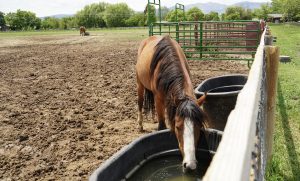
2. Shade is a Summer Staple
Whether it’s a run-in shed or a large tree, make sure your horse has access to shade throughout the day. If your horse is turned out in an open field, consider rotating them to a pasture with natural shade or providing a temporary shelter.
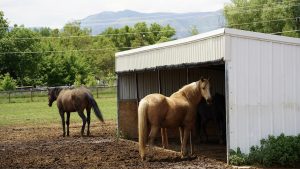
3. Slow the Sweat
Early morning or evening rides are easier on your horse’s system. If you must ride in the heat, go light on the workout and take plenty of breaks.
After exercise, cool your horse down gradually with hand-walking and a rinse with cool (not ice-cold) water. Use a sweat scraper to remove excess water so it doesn’t trap heat.
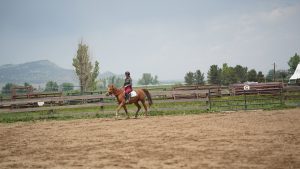
4. Fly Defense is a Must
Flies and other insects are more than annoying. They can spread disease and cause painful bites. Use fly masks, fly sheets, and equine-safe repellents to keep the bugs at bay.
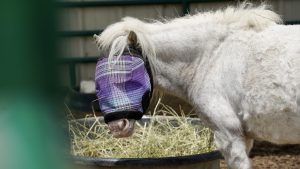
5. Sunburn Happens
Yes, horses can get sunburn, especially those with pink skin around the muzzle or eyes. Apply equine-safe sunscreen or use a fly mask with UV protection.
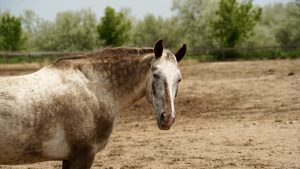
6. Hoof Health in the Heat
Dry summer conditions can lead to brittle or cracked hooves. Maintain regular farrier visits, clean hooves regularly, and consider applying a hoof conditioner or moisturizer to combat dryness.
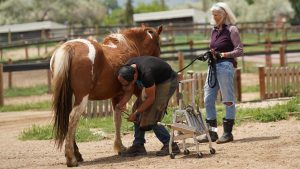
7. Watch for Signs of Heat Stress
Know the signs of heat exhaustion and heatstroke in horses, including:
- Excessive sweating or no sweating at all
- Rapid breathing or pulse
- Lethargy or stumbling
- Elevated body temperature (above 102.5°F)
If you notice any of these symptoms, call your vet immediately, move your horse to shade, and begin cooling with water and fans.
8. Adjust Feeding
If your horse is working more in the summer, they may need more calories or electrolytes. On the flip side, horses that are more sedentary might need a lighter diet to avoid weight gain. Speak with your vet or an equine nutritionist to find the right balance.
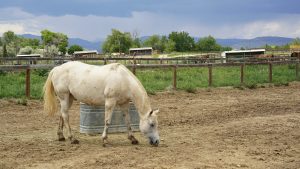
Summer can be a wonderful time to bond with your horse, but it requires a little extra awareness and effort to keep your horse healthy and happy. With a thoughtful routine and watchful eye, you can help your horse thrive during the hottest months of the year.